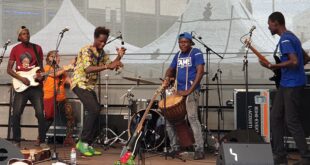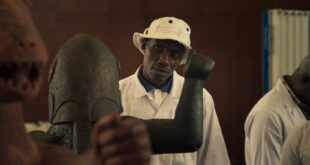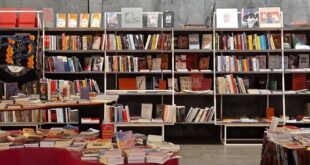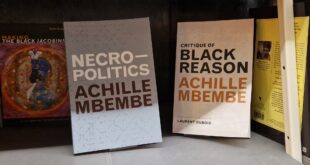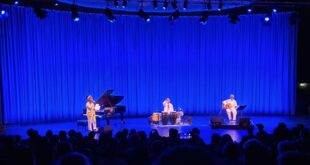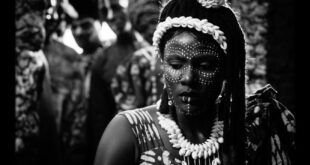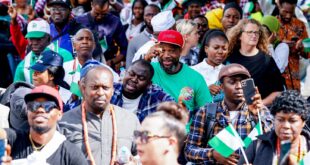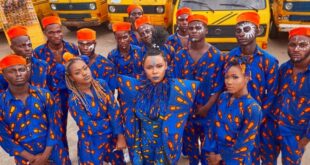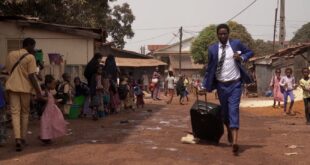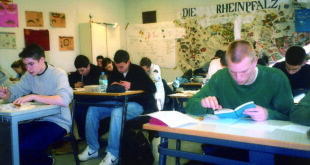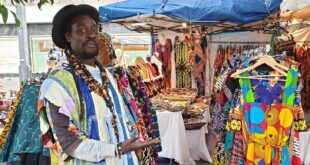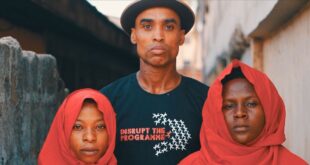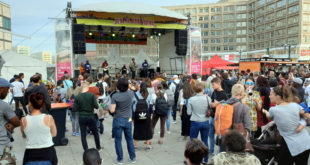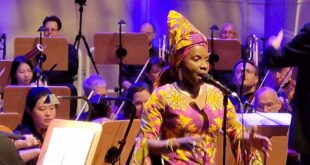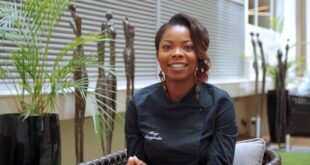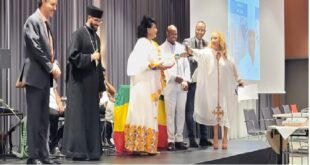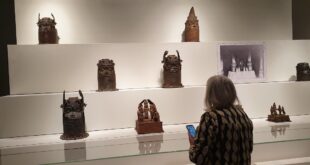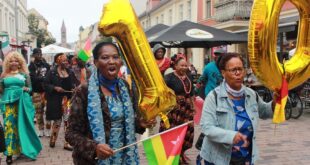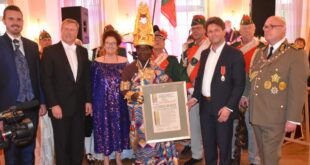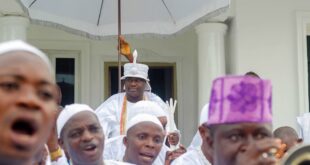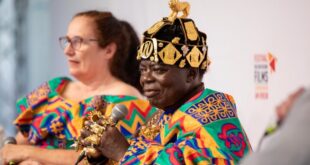The 67th Berlin International Film Festival – Berlinale – kicks off on 9 February in the German capital city.
The Berlinale is one of the biggest international film festivals alongside the Cannes and Toronto film festivals.
Up to 400 films are shown every year, mostly international or European premieres, and the festival, the world’s second largest audiovisual event, sells more than 300,000 tickets and hosts more than 20,000 professional visitors from 128 countries.
Besides German or European cinema and Hollywood blockbusters, the festival’s programme this year also features productions from Africa.
Vaya, a South African film directed by the Nigerian Akin Omotosho; Cahier Africain, a Swiss-German production that documents the suffering of 300 Central Africans in the hands of Congolese mercenaries between October 2002 and March 2003; and Wallay, a depiction of everyday life in Burkina Faso through the eyes of 13-year-old boy, are among the nine African films that will be screened at the 2017 Berlinale, which runs until 19 February.
In the running for the Golden Bear, the highest prize awarded for the best film at the Berlin International Film Festival, is the Congo-set Félicité, a French-Senegalese production about a mother searching for funds to keep her injured son from losing his leg.
Thanks to the support of the German Federal Foreign Office, for the first time the Berlinale will provide a platform for innovative projects and ideas from the African film industry.
The “Berlinale Africa Hub” is an initiative of the European Film Market (EFM) in co-operation with the World Cinema Fund (which promotes films from Sub-Saharan Africa with the support of the German Federal Foreign Office), Berlinale Talents (and its sister programme Talents Durban, which supports talented African filmmakers throughout the year), and the Berlinale Co-Production Market.
As Festival Director Dieter Kosslick says, “The Berlinale has long-standing relationships with numerous African filmmakers, and has fostered the film industry in Africa in a variety of ways. Now, due to the support of the German Federal Foreign Office, with the ‘Berlinale Africa Hub’ we can substantially intensify that commitment. The new platform at the European Film Market will bring the next generation of African filmmakers to Berlin and offer an international forum for current technology, ideas, and developments in the African film industry”.
The Berlinale Africa Hub is a communication and networking platform for the African film industry and all EFM participants who want to know more about new distribution and marketing models that have emerged in the last few years.
As part of the Hub, there will be networking events, featuring discussions of the most important issues in sales, distribution, marketing, project packaging, co-production, subsidies, and talent development in the African industry.
Among the participants and partners of the Berlinale Africa Hub are companies like the non-profit organization Electric South from Cape Town, the pan-African online platform Mokolo, Rushlake Media from Cologne and the Goethe-Institut.
Berlinale will again thisyear promote the integration of refugees. The Festival has always made a point of fostering understanding, tolerance, and acceptance, as well as responding to current events in society – not only with its film programme, but also with many other activities.
Last year several concrete projects were launched to support refugees. Due to the very positive feedback of the participants and the desire to achieve longer-lasting integration, these projects will be continued and expanded.
Vivian Asamoah
 THE AFRICAN COURIER. Reporting Africa and its Diaspora! The African Courier is an international magazine published in Germany to report on Africa and the Diaspora African experience. The first issue of the bimonthly magazine appeared on the newsstands on 15 February 1998. The African Courier is a communication forum for European-African political, economic and cultural exchanges, and a voice for Africa in Europe.
THE AFRICAN COURIER. Reporting Africa and its Diaspora! The African Courier is an international magazine published in Germany to report on Africa and the Diaspora African experience. The first issue of the bimonthly magazine appeared on the newsstands on 15 February 1998. The African Courier is a communication forum for European-African political, economic and cultural exchanges, and a voice for Africa in Europe.



